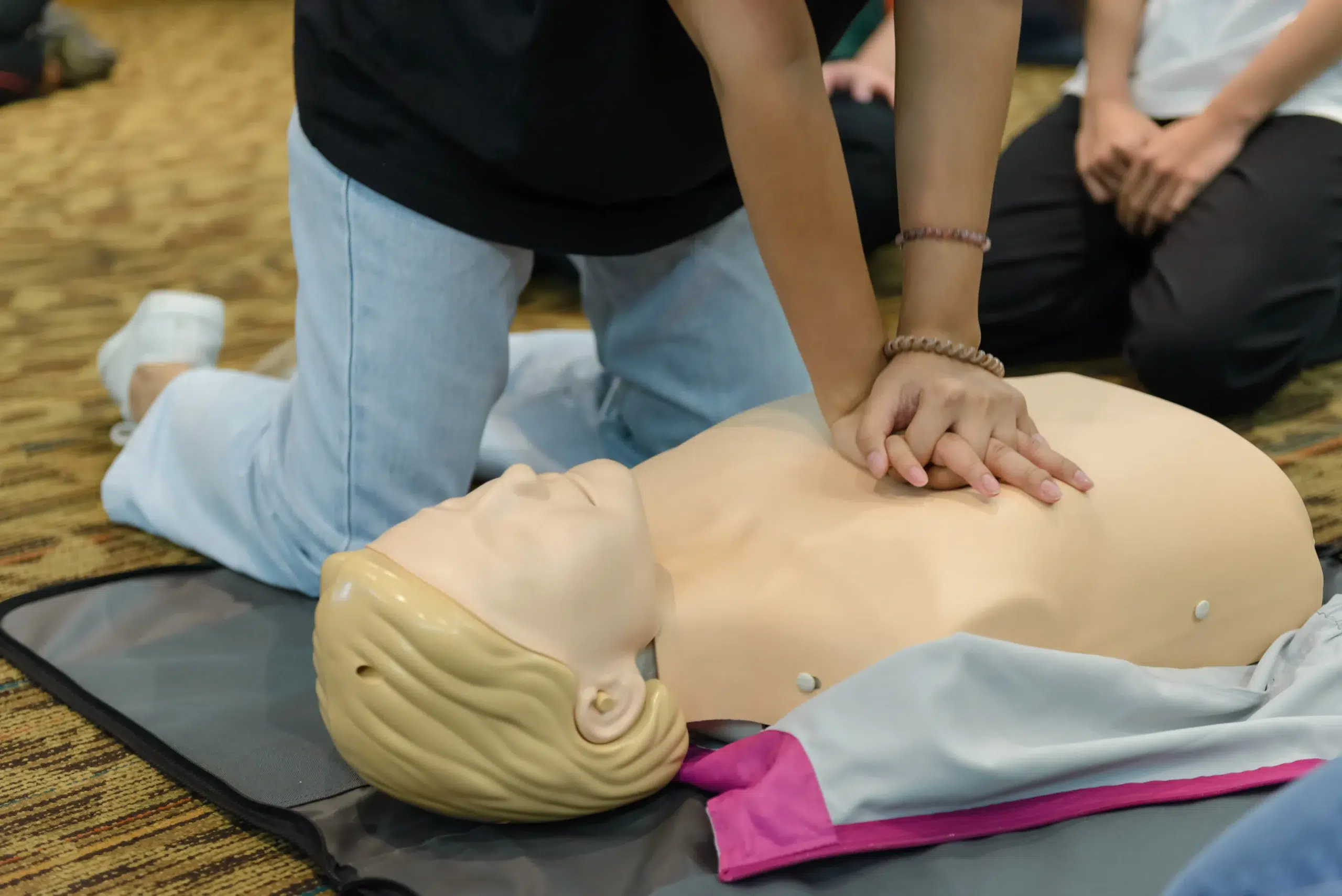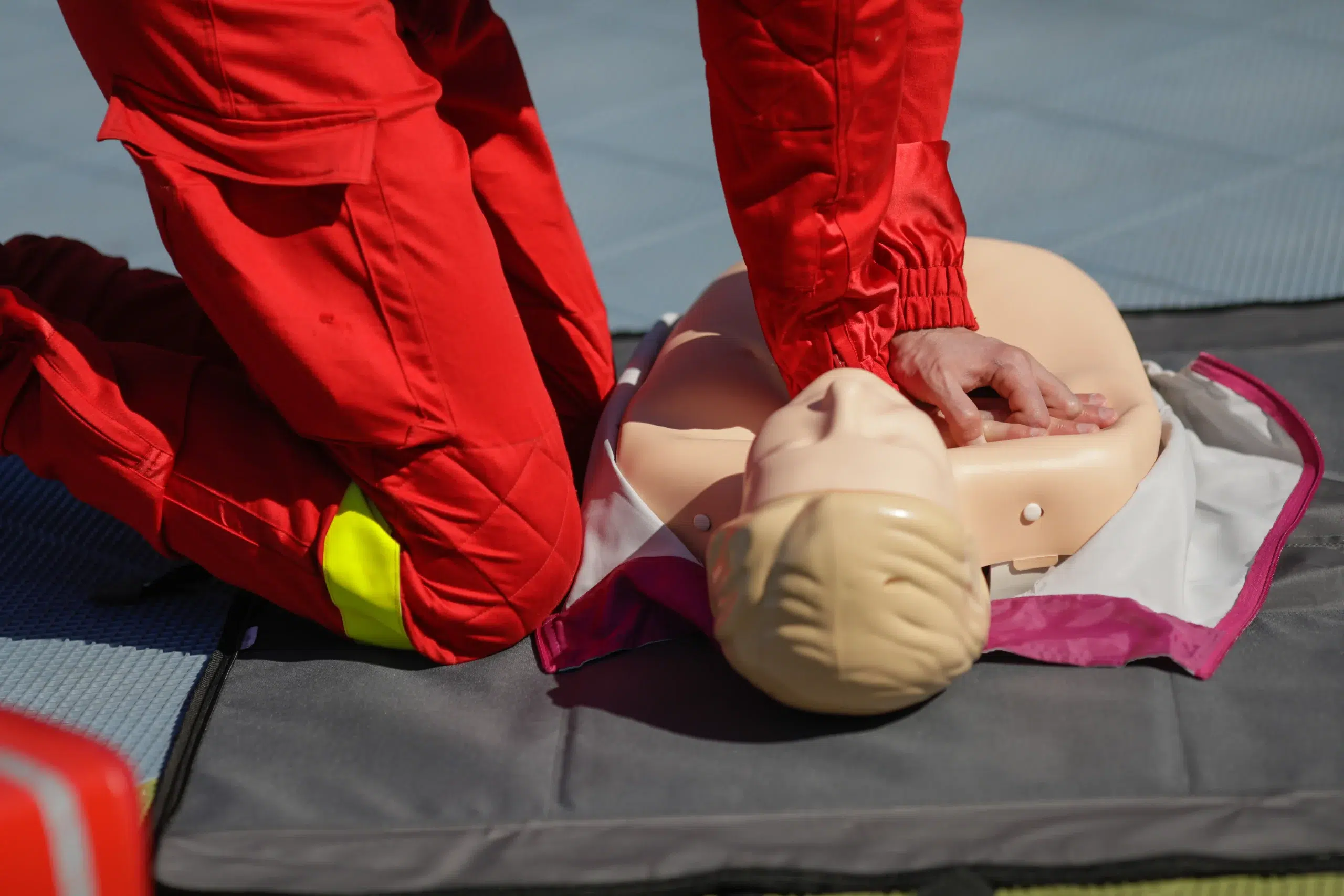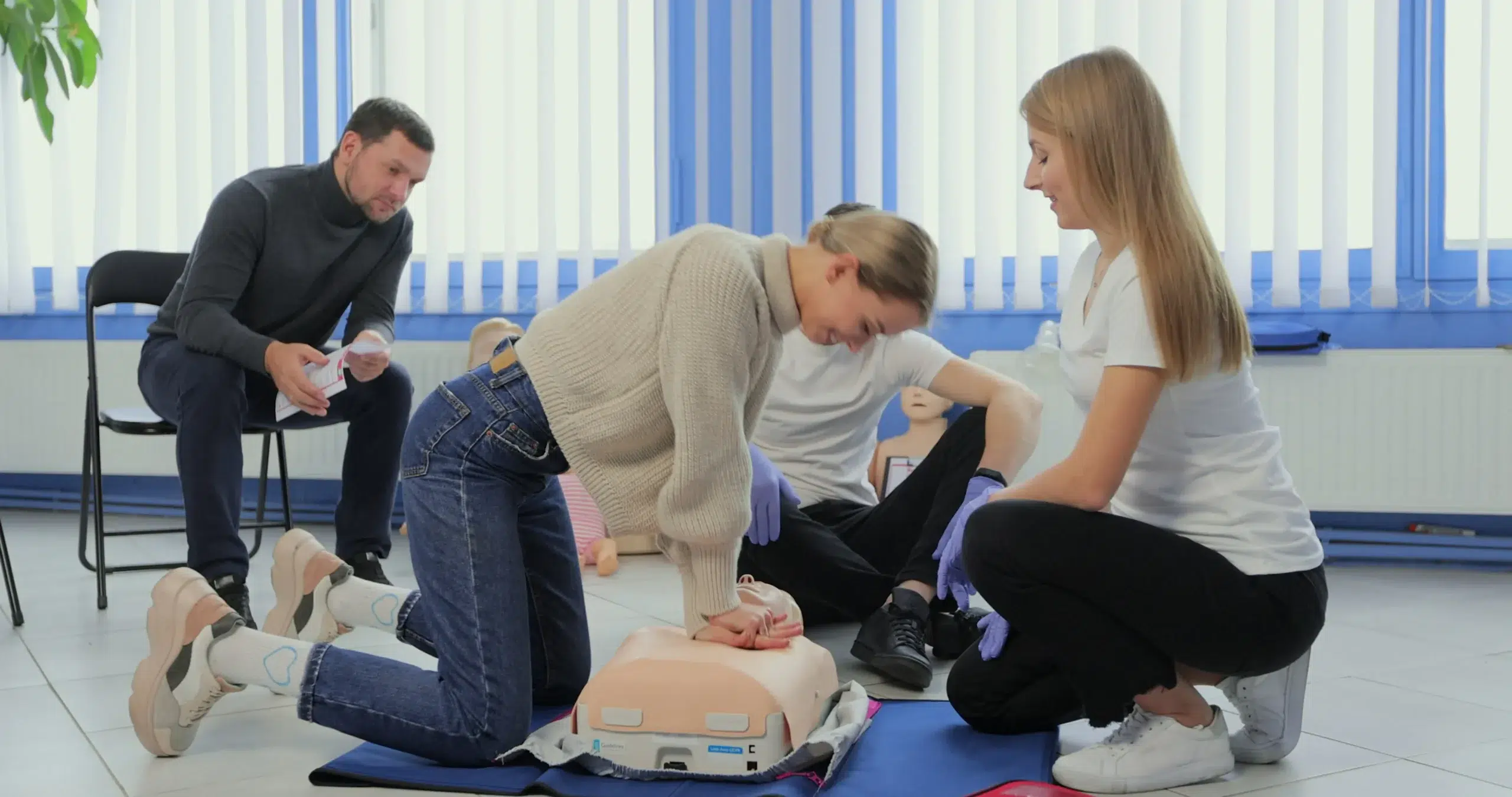Working in healthcare, especially around children, means being prepared for anything. Pediatric Advanced Life Support (PALS) certification equips you with the skills to handle pediatric emergencies effectively. But finding the time for essential training can be tough. That’s where the flexibility of online PALS classes in San Mateo comes in. This article explores everything you need to know about online PALS certification, from course content and reputable providers to navigating the renewal process. We’ll also discuss the benefits and challenges of online learning and offer practical tips for success. Whether you’re a seasoned healthcare professional or just starting your career, this guide will help you find the perfect online PALS course in San Mateo to fit your needs and schedule.
Key Takeaways
- PALS certification equips you with essential skills for pediatric emergencies. Whether you choose online or in-person training, PALS empowers you to confidently manage critical situations and improve patient outcomes.
- Online PALS courses offer flexible, convenient learning. The blended learning format lets you study at your own pace and then demonstrate your skills in a hands-on session.
- Maintain your PALS certification to stay current with best practices. Regular renewal and continuing education demonstrate your commitment to providing high-quality pediatric care.
What is PALS Certification?
Pediatric Advanced Life Support (PALS) certification is a specialized course designed to equip healthcare providers with the knowledge and skills to respond effectively to pediatric emergencies. It focuses on a systematic approach to pediatric assessment, basic life support, PALS treatment algorithms, and effective resuscitation techniques. This training empowers healthcare professionals to confidently manage respiratory and cardiac emergencies in infants and children, ultimately improving patient outcomes. Millbrae CPR Classes offers a variety of PALS courses.
What is PALS and Who Needs It?
PALS certification is essential for any healthcare professional regularly involved in the care of infants and children. This includes physicians, nurses, paramedics, respiratory therapists, and emergency medical technicians. It’s a core certification for many pediatric specialists and is often required for employment in pediatric critical care units, emergency departments, and other pediatric healthcare settings. If your work involves the potential for pediatric emergencies,
PALS’ Role in Pediatric Healthcare
PALS training plays a critical role in maintaining high standards of pediatric healthcare. By adhering to the guidelines established by the American Heart Association, PALS promotes consistent and evidence-based practices for managing pediatric emergencies. This standardized approach ensures that healthcare providers across different settings can work collaboratively and efficiently during critical situations. PALS certification contributes to a safer environment for young patients by preparing healthcare professionals to deliver timely and effective interventions.
Online PALS Classes in San Mateo: Overview
Available Online PALS Courses
Finding the right Pediatric Advanced Life Support (PALS) course in San Mateo is easier than ever, thanks to a variety of online options. The American Heart Association (AHA) offers comprehensive online PALS courses designed to equip healthcare providers with the skills to respond to pediatric emergencies. These courses often allow for flexible, self-paced learning, making them a convenient choice for busy professionals. You’ll also find other reputable providers like Safety Training Seminars offering various CPR, BLS, ACLS, and PALS classes in the San Mateo area. Having various options ensures you can find a course that aligns with your schedule and learning style. Be sure to check with your employer or licensing board to confirm which certifications they recognize.
Online vs. In-Person PALS Training
Choosing between online and in-person PALS training often comes down to personal preference and learning style. Online PALS courses offer a significant advantage in terms of flexibility. You can study at your own pace and revisit material as needed. Many online courses incorporate interactive elements and regular assessments to keep you engaged and test your understanding. However, if you prefer a more structured, traditional classroom setting, in-person training might be a better fit. For those seeking a balance, hybrid courses combine online learning with in-person skills sessions, offering a blended approach that caters to different learning styles. Consider what works best for you to get the most out of your PALS training. If you learn best in a group setting, in-person training might be preferable. If you need flexibility, online learning could be ideal.
Top Online PALS Providers in San Mateo
Finding the right PALS provider can feel overwhelming, so we’ve compiled a list of reputable options in San Mateo to help you in your search for high-quality, convenient training.
Millbrae CPR Classes
Millbrae CPR Classes offers a comprehensive selection of American Heart Association courses, including PALS. As an authorized AHA Training Center, their curriculum adheres to the latest AHA guidelines, ensuring your certification is recognized and respected. They are known for excellent customer service and offer various courses, from CPR and First Aid to specialized training like the RQI program for healthcare professionals. Conveniently located in Millbrae, they serve San Mateo, Daly City, and surrounding areas. They also offer discounts for group classes.
ACLS Certification California
ACLS Certification California focuses on online certification and recertification courses, including PALS, specifically designed for medical professionals in San Mateo County. Their entirely online format allows access to coursework from any device, providing flexibility for busy schedules. This provider’s concentration on ACLS, PALS, and BLS highlights their specialized approach to these essential certifications.
Bay Area CPR
Bay Area CPR (Safety Training Seminars) offers AHA-certified courses in San Mateo, including PALS. With daily classes and on-site training options for groups, they are a convenient choice for local businesses and healthcare teams. Their course selection covers essential certifications such as BLS, ACLS, and CPR/First Aid.
San Mateo CPR Courses
San Mateo CPR Courses (Safety Training Seminars) prioritizes customer service, with representatives available daily, including weekends. They offer a range of AHA-certified courses, including BLS, ACLS, PALS, CPR, and First Aid, with classes held daily in San Mateo and nearby cities. Their focus on accessibility and frequent class schedules makes them a practical choice for those looking for quick certification.
Online PALS Course Structure and Content
Online PALS courses offer a flexible way to develop your lifesaving skills. They typically use a blended learning approach, combining online instruction with hands-on practice. This format lets you learn the course material at your own speed and then demonstrate your skills in a real-world setting.
Self-Paced Learning
Online PALS courses offer the convenience of self-paced learning. You can study whenever and wherever it suits you best. This flexibility is especially helpful for busy professionals juggling work and family commitments. Regular assessments throughout the online modules help you gauge your understanding and track your progress. These online courses are designed to be engaging and keep you focused on the material.
Hands-On Skills Testing
While the coursework is online, PALS certification requires demonstrating proficiency in practical skills. After finishing the online portion, you’ll participate in a hands-on skills session. This in-person component allows you to practice essential techniques and receive feedback from a certified instructor. This in-person training is essential for earning your PALS certification. You’ll schedule this session at a time that works for you.
Blended Learning
The blended learning approach combines online and in-person instruction. You benefit from the flexibility of self-paced online learning for the theoretical information, followed by the hands-on practice necessary to master essential skills. This combination ensures you have a strong theoretical foundation and the confidence to apply your knowledge in real-life scenarios. This format is also ideal for recertification, allowing you to refresh your knowledge and skills efficiently.
Online PALS Certification: Cost and Time
Getting your PALS certification online is often more affordable than in-person training. But how much does it actually cost, and how much time will you need? Let’s break it down.
Certification & Renewal Costs
Online PALS courses typically range from $150 to $300. This often includes online course materials, skills testing, and your PALS certification card. For example, Safety Training Seminars offers comprehensive PALS certification packages for $290, covering everything from online training to the skills check and card. Remember that prices can vary, so compare a few options before committing to a course. Don’t forget to ask about renewal costs, as you’ll need to recertify every two years. Planning ahead will help you budget appropriately. Millbrae CPR Classes offers a low price guarantee, so you can be confident you’re getting a good deal.
Time Commitment & Scheduling
One of the biggest advantages of online PALS certification is flexibility. You can usually complete the online portion at your own pace in about three to four hours. After that, you’ll schedule a short in-person skills session (typically 30–40 minutes). This blended learning approach lets you fit the training around your schedule. Check with your chosen provider for available skills testing times and locations. Millbrae CPR Classes offers daily classes in over 60 cities, making scheduling easy.
Fees & Materials
While most online PALS courses cover the core materials in their course fee, double-check for any extra costs. Some providers might charge extra for study guides or practice exams. Make sure you understand exactly what’s included before you sign up. If you prefer physical materials, factor in the cost of printing the online resources. Clarifying these details upfront will help you avoid surprises.
Online PALS Classes: Benefits and Challenges
Online PALS certification offers a convenient way to gain essential pediatric lifesaving skills, but it also presents unique challenges. Let’s explore the pros and cons to help you decide if online PALS training is the right choice for you.
Flexibility and Convenience
Juggling work, family, and other commitments makes finding time for professional development tough. Online PALS courses offer the flexibility to learn at your own pace, anytime, anywhere. This is particularly helpful for busy professionals like nurses, doctors, and dentists who need to fit training around demanding schedules. You can study during your lunch break, after your shift, or whenever it suits you best. This flexible format makes continuing education much more manageable. Plus, no commute means you save time and money on travel.
Cost-Effectiveness
Online PALS courses are often more affordable than traditional classroom-based courses. This makes them a practical choice for healthcare professionals, especially those renewing their certification. Lower overhead costs for providers often translate to lower course fees for students. You might also save on expenses like parking, gas, and meals that you’d typically incur with in-person training. Check with your employer—some even offer reimbursement for online professional development courses.
Online Learning Engagement & Focus
Online PALS courses are designed to be interactive and engaging. Instead of passive lectures, you’ll find interactive exercises, simulations, and regular assessments to keep you focused and reinforce your learning. These interactive elements help you actively participate in the material and test your knowledge as you progress. This approach can be more effective than traditional lectures for some learners. For example, you might work through a simulated scenario requiring you to apply your PALS knowledge in a realistic, yet risk-free, environment.
Troubleshooting Technical Issues
While online learning offers many advantages, technical issues can occasionally disrupt your studies. A reliable internet connection is crucial, and you’ll need a computer or tablet that meets the course requirements. Familiarize yourself with the online platform and its support resources before you begin. Most providers offer technical assistance, but knowing how to address common problems can save you time and frustration. If you have any concerns about accessibility, reach out to the course provider to discuss your needs and ensure the platform is suitable for you. For instance, if you require closed captions or screen reader compatibility, confirm these features are available before registering.
Tips for Online PALS Certification Success
Successfully completing your online PALS certification requires a focused approach. These tips can help you prepare and make the most of your training.
Study Strategies for Self-Paced Learning
Online PALS courses offer flexibility, allowing you to learn at your own speed. Create a dedicated study schedule that integrates seamlessly with your existing commitments. Regularly review the material and use the course assessments to check your understanding. Many online PALS courses use engaging, interactive methods to maintain your focus and test your knowledge as you go. Look for courses developed by reputable organizations, like the American Heart Association, for high-quality instruction. For in-person training options, check out the American Heart Association courses offered by Millbrae CPR Classes.
Maximize Your Hands-On Skills Session
Online PALS certification often uses a blended learning approach, combining online coursework with an in-person skills session. Before your in-person session, review the materials covering practical skills. This preparation allows you to concentrate on mastering the techniques during the hands-on training. Use the in-person component to ask questions and practice with experienced instructors. This blended format ensures you develop both the knowledge and practical skills needed for certification. Explore Millbrae CPR Classes’ blended learning CPR courses for more information on this combined approach.
Manage Your Time Effectively
Balancing work, family, and other commitments with PALS certification can be challenging. Plan and allocate specific times for studying and attending the skills session. Treat these as important appointments. Online PALS courses offer the flexibility to fit your studies into your schedule. Break down your study time into smaller, manageable chunks. Short, focused study periods are often more effective than cramming. Finding a balance that works for you is key to successfully completing your certification.
Maintain Your PALS Certification
As a healthcare provider, your PALS certification shows your dedication to high-quality pediatric care. But PALS certification, like most medical certifications, has an expiration date. To stay up-to-date with the latest guidelines and best practices, you’ll need to renew your certification regularly. Let’s look at how to maintain your PALS certification and keep your skills sharp.
Renewal Process
PALS certification is valid for two years. You’ll need to complete a PALS renewal course before it expires to maintain your credentials. Renewal courses are generally shorter than the initial certification course, focusing on a review of essential skills and knowledge, and incorporating updates to the latest American Heart Association guidelines for pediatric advanced life support. Many providers appreciate the convenience of online PALS renewal courses, which easily fit into busy schedules.
Continuing Education
Continuing education is essential for professional development, even beyond the formal renewal process. Pediatric emergency care is constantly evolving, so ongoing training is key to ensuring you’re prepared for anything. Actively pursuing continuing education not only improves your skills and knowledge but also demonstrates your commitment to providing excellent care. Many online PALS courses offer continuing education units (CEUs), which can often count toward maintaining other certifications, making professional development more efficient. Staying informed on the latest advancements in pediatric care allows you to confidently provide effective and current treatment. The American Heart Association website offers valuable educational materials and training opportunities.
Choose the Right Online PALS Course in San Mateo
Choosing the right online PALS course is crucial for a successful learning experience. Here’s what to consider when making your decision:
Accreditation and Recognition
First, ensure the course aligns with the 2020 resuscitation guidelines and is accepted by your employer and licensing bodies. A provider accredited by the American Heart Association is a good starting point. Look for clear information about the provider’s credentials and affiliations on their website. For example, Millbrae CPR Classes clearly states its affiliation with the AHA on its CPR and First Aid page. This transparency helps you verify the legitimacy and quality of the training.
Course Features and Support
A quality online PALS course should offer more than just videos. Look for interactive elements, regular assessments, and practice scenarios to reinforce learning. Does the course offer supplemental materials or support from instructors? A good online course keeps you engaged and provides opportunities to test your knowledge as you progress. Consider whether the platform offers mobile access, allowing you to study anytime, anywhere.
Find Your Learning Style
Online learning offers flexibility, but it’s not one-size-fits-all. If you thrive in a traditional classroom setting and value face-to-face interaction, a blended learning approach (combining online modules with in-person skills practice) might be a better fit. If you prefer self-directed learning and appreciate the convenience of studying at your own pace, a fully online course could be ideal. Consider factors like group learning and check if the provider offers group discounts.
Group Discounts & Accessibility
If you’re training a team, inquire about group discounts. Many providers offer reduced rates for group registrations. Also, consider the accessibility of the course itself. Are classes offered frequently and at a convenient location? Millbrae CPR Classes, for example, highlights the availability of its courses and mentions offering classes in multiple locations. Check if the provider offers courses at your location or nearby to minimize travel time.
Related Articles
- PALS HeartCode San Mateo: Your Certification Guide – Millbrae CPR Classes
- AHA PALS Classes in Millbrae, CA – Millbrae CPR Classes
- ACLS HeartCode Daly City: Your Complete Guide – Millbrae CPR Classes
- CPR Renewal in Millbrae: Your Complete Guide – Millbrae CPR Classes
- ACLS Certification in Millbrae: Your Complete Guide – Millbrae CPR Classes
Frequently Asked Questions
Is online PALS certification as good as in-person training? Yes, online PALS certification is equivalent to in-person training, as long as it includes a hands-on skills assessment component. The blended learning approach combines the flexibility of online learning with the essential practical training required for certification. Make sure the online portion is accredited by a recognized organization like the American Heart Association. The in-person skills check ensures you can perform the necessary techniques correctly and safely.
How long does it take to get PALS certified online? You can typically complete the online coursework in three to four hours, depending on your learning pace. After that, you’ll need to schedule a brief in-person skills session, usually lasting around 30-40 minutes. The flexibility of online learning allows you to work through the material when it’s convenient for you.
How much does online PALS certification cost? Online PALS courses generally range from $150 to $300, covering the online materials, skills testing, and certification card. Check with different providers, as prices can vary. Some providers, like Millbrae CPR Classes, offer a low-price guarantee. Also, ask about group discounts if you’re certifying a team.
How often do I need to renew my PALS certification? PALS certification is valid for two years. You’ll need to take a PALS renewal course before your current certification expires. Renewal courses are typically shorter and focus on refreshing your knowledge and skills, as well as covering any updates to the guidelines.
What if I have problems with the online platform or technology during my PALS course? Most online PALS providers offer technical support. Before you start, familiarize yourself with the platform and its resources. A stable internet connection and a computer or tablet that meets the course requirements are essential. Contact the provider directly if you encounter persistent technical issues or have accessibility concerns.






